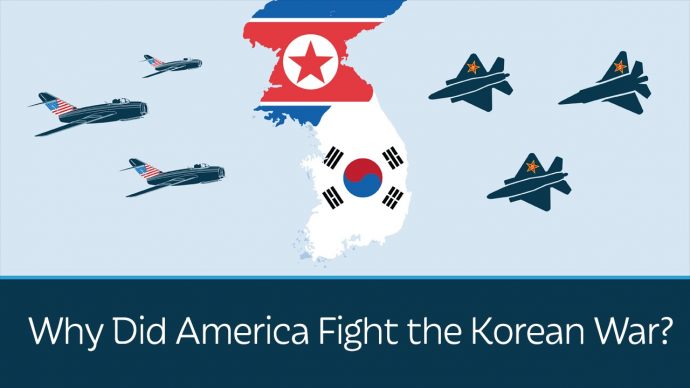How many Americans know the facts presented here by Victor Davis Hanson in this Prager University video? Probably very few, due to the fact that conservatives long ago surrendered most of the American public school system to the radical political left:
What was the Korean War? And why was America involved in such a faraway conflict? Was the United States’ sacrifice–35,000 killed, over 100,000 wounded–worth it? Historian Victor Davis Hanson, Senior Fellow at the Hoover Institution, shares the fascinating story of the transformative war that many have forgotten.
Mention the Korean War today and most people will look at you with a blank stare. At the time it was fought, just five years after World War II ended, everyone recognized it as a world-shaping conflict, a stark confrontation between the forces of democracy and communism.
It began on June 25, 1950 when Soviet-backed communist North Korea crossed the 38th parallel and invaded its US-backed anti-communist South Korean neighbor. Within weeks the communists had nearly absorbed the entire country. The United States at first was confused over whether it should—or even could—respond. America had slashed its military budget after the end of World War II and was short both men and equipment. It still had not awakened fully to the expansionist threat of Soviet Russia.
The Soviets—buoyed by their own recent development of an atomic bomb and Mao Zedong’s communist victory in China—sensed America’s lack of resolve and encouraged the North’s aggression. Yet within weeks President Harry Truman rushed troops to save the shrinking Allied perimeter at Pusan on the southern tip of the Korean Peninsula. And by late September, 1950, General Douglas MacArthur had successfully completed the Inchon landings and launched counter-attacks.
He quickly reclaimed the entire south and sent American-led United Nations forces far into North Korea to reunite the entire peninsula—only to be surprised when hundreds of thousands of Chinese Red Army troops crossed the Yalu River at the Chinese border and sent the outnumbered Americans reeling back into South Korea.
Continue reading at Prager University — click on “View Transcript.”

